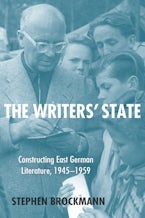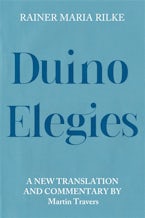
Title Details
308 Pages
22.8 x 15.2 cm
12 b/w illus.
Series: Studies in German Literature Linguistics and Culture
Series Vol. Number:
206
Imprint: Camden House
Transformation and Education in the Literature of the GDR
- Description
- Contents
- Author
- Reviews
This book explores how writers adhered to, played with, and subverted the formulaic precepts of educational transformation in the German Democratic Republic.
Perhaps never before has a state emphasized education to citizenship more than in the new nation founded in 1949 as the German Democratic Republic. For forty years, educational and cultural policy played a pivotal role in effortsto build and sustain a socialist state on German soil. Party and state held teachers and writers responsible for demonstrating the superiority of socialism, infusing pupils and readers with a commitment to the emerging state, andproviding persuasive role models of der neue Mensch each was challenged to become.
Utilizing an innovative triangular framework, this book demonstrates how mentor-protegé(e) rubrics, traditionally associated with the socialist Bildungsroman, came to characterize text-external and text-internal relations within diverse narrative forms. Thus, leading writers such as Hermann Kant, Christa Wolf, Brigitte Reimann, and Christoph Hein played with the genre's patterns of transformation as they engaged with the intellectual, societal, and aesthetic dilemmas of GDR life. This book shows that understanding representations of educational transformation in GDR literature, a topic largely overlooked by critics, is central to an aesthetic appreciation of that literature more broadly.
Perhaps never before has a state emphasized education to citizenship more than in the new nation founded in 1949 as the German Democratic Republic. For forty years, educational and cultural policy played a pivotal role in effortsto build and sustain a socialist state on German soil. Party and state held teachers and writers responsible for demonstrating the superiority of socialism, infusing pupils and readers with a commitment to the emerging state, andproviding persuasive role models of der neue Mensch each was challenged to become.
Utilizing an innovative triangular framework, this book demonstrates how mentor-protegé(e) rubrics, traditionally associated with the socialist Bildungsroman, came to characterize text-external and text-internal relations within diverse narrative forms. Thus, leading writers such as Hermann Kant, Christa Wolf, Brigitte Reimann, and Christoph Hein played with the genre's patterns of transformation as they engaged with the intellectual, societal, and aesthetic dilemmas of GDR life. This book shows that understanding representations of educational transformation in GDR literature, a topic largely overlooked by critics, is central to an aesthetic appreciation of that literature more broadly.
Introduction: The Postwar Desire for Renewal
Shaping the Cultural and Educational Landscape in the Soviet Occupation Zone (SBZ)
Interweaving GDR Education and Cultural Policy towards a National Literature
Critiquing the Norm in Steinmann's Die größere Liebe, Wolf's Der geteilte Himmel, and Kant's Die Aula
"Ich bin. Wer?": Subjectivity and Transformation in Wolf's Nachdenken über Christa T. and Reimann's Franziska Linkerhand
"Wem geben wir Einsen . . .?" Meritocracies and Reward in de Bruyn's Die Preisverleihung and Plenzdorf's Die neuen Leiden des jungen W
"Mir geht es gut": Challenging Stagnation in Hein's Der fremde Freund and Höntsch's Wir sind keine Kinder mehr
Conclusion
Appendix A: Text-Internal Functions of Narrative Triangle (Left Side)
Appendix B: Text-External Functions of Narrative Triangle (Right Side)
Notes
Bibliography
Index
Shaping the Cultural and Educational Landscape in the Soviet Occupation Zone (SBZ)
Interweaving GDR Education and Cultural Policy towards a National Literature
Critiquing the Norm in Steinmann's Die größere Liebe, Wolf's Der geteilte Himmel, and Kant's Die Aula
"Ich bin. Wer?": Subjectivity and Transformation in Wolf's Nachdenken über Christa T. and Reimann's Franziska Linkerhand
"Wem geben wir Einsen . . .?" Meritocracies and Reward in de Bruyn's Die Preisverleihung and Plenzdorf's Die neuen Leiden des jungen W
"Mir geht es gut": Challenging Stagnation in Hein's Der fremde Freund and Höntsch's Wir sind keine Kinder mehr
Conclusion
Appendix A: Text-Internal Functions of Narrative Triangle (Left Side)
Appendix B: Text-External Functions of Narrative Triangle (Right Side)
Notes
Bibliography
Index
"Accessible and chronological, Conacher's book benefits scholars and students alike. It will help the latter to contextualize East German literature within the GDR's trajectory and the concrete politics of the day; the former will find Conacher's keen analyses on how the texts react to ideology and perceptions of reality compelling." Evelyn Preuss, Studies in 20th and 21st Century Literature
"Until now literary representations of educational institutions, teachers, and educational transformation of GDR citizens had not been examined, so this volume is particularly noteworthy. It concludes with comprehensive notes and appendixes illustrating the author's theoretical framework. Scholars familiar with East German literature will appreciate this volume." B.W. Vetruba, CHOICE
Hardcover
9781571139559
January 2020
$110.00 / £95.00
Ebook (EPDF)
9781787445390
January 2020
$29.95 / £24.99
Title Details
308 Pages
2.28 x 1.52 cm
12 b/w illus.
Series: Studies in German Literature Linguistics and Culture
Series Vol. Number:
206
Imprint: Camden House














